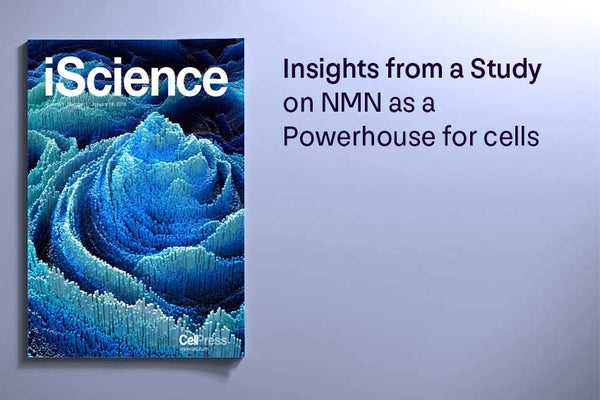
The research paper titled "β-Nicotinamide Mononucleotide Supplementation Increases the Nucleotide Pool Through Multiple Pathways, (NMN) Improving Mitochondrial DNA Metabolism" was published in 2022 by Daiki Setoyama and colleagues from the Kyushu University Department of Clinical Chemistry and Laboratory Medicine, and the National Cardiovascular Center Research Institute's Department of Research Promotion and Management. The study can be found here.
This study is known to be part of the larger scientific quest to unveil the secrets of longevity. It investigates the impacts of β-Nicotinamide mononucleotide (β-NMN), a precursor of Nicotinamide Adenine Dinucleotide (NAD+), on various animal models, particularly its effects on mitochondria.
Mitochondria are often referred to as the powerhouses of the cell as they are instrumental in generating energy. As cells age, however, their mitochondria lose functionality, which is believed to be a significant driver of the aging process. This is why β-NMN, and its potential benefits to mitochondria, are of such interest in biogerontology (the study of aging).
In exploring these effects, the authors identified two distinct metabolic pathways through which β-NMN affects mitochondria. They found that β-NMN boosts the nucleotide pool needed for mitochondrial DNA replication. This activation was found to increase via two primary mechanisms.
Firstly, they found that β-NMN increases the synthesis of ubiquinone in the inner mitochondrial membrane. This, in turn, helped enhance the electron transport capacity and led to the activation of the enzyme dihydroorotate dehydrogenase. This enzyme happens to be a rate-limiting component of pyrimidine synthesis, which is essential to DNA and RNA. When the researchers administered β-NMN to aged mice in the short term, they found that ubiquinone levels in the heart and kidney mitochondria increased.
In addition to this, β-NMN was found to be metabolized into another two components, nicotinamide and ribose 5-phosphate, by a glycohydrolase enzyme in cells. Ribose 5-phosphate can be utilized as a sugar source required for nucleotide synthesis. Hence, supplementing with β-NMN effectively promoted nucleotide production via these two metabolic pathways, which are believed to enhance mitochondrial DNA replication capacity.
These findings boost our understanding of how β-NMN supplementation works at a metabolic level to improve aspects of mitochondrial DNA metabolism. This could be a possible mechanism through which it supports longevity. However, before we leap to conclusions about implementing this kind of supplementation in humans, additional research is necessary.
Specifically, future studies will need to further investigate the broader impacts of changes in mitochondrial performance on aging at a whole-organism level. This study represents a critical step toward more in-depth understanding and potentially practical applications aimed at promoting health and longevity.
Key Takeaways:
- β-Nicotinamide mononucleotide (β-NMN), a precursor of NAD+, has shown promising effects on mitochondria, the powerhouses of cells.
- The research identified two distinct metabolic pathways that β-NMN uses to promote an increase in the nucleotide pool critical for mitochondrial DNA replication.
- β-NMN increases the synthesis of ubiquinone in the mitochondrial inner membrane, improving the electron transport capacity and activating the enzyme dihydroorotate dehydrogenase, crucial for pyrimidine synthesis.
- β-NMN is metabolized to nicotinamide and ribose 5-phosphate in cells, which can be used as a sugar source necessary for nucleotide synthesis.
- Supplementation with β-NMN, therefore, helps enhance nucleotide synthesis via these two metabolic pathways, potentially bolstering mitochondrial DNA replication capacity.
- This advancement in our understanding of how β-NMN supplementation impacts mitochondrial DNA metabolism could present potential avenues for promoting health and longevity. However, further research is necessary before extending these findings to human usage.
